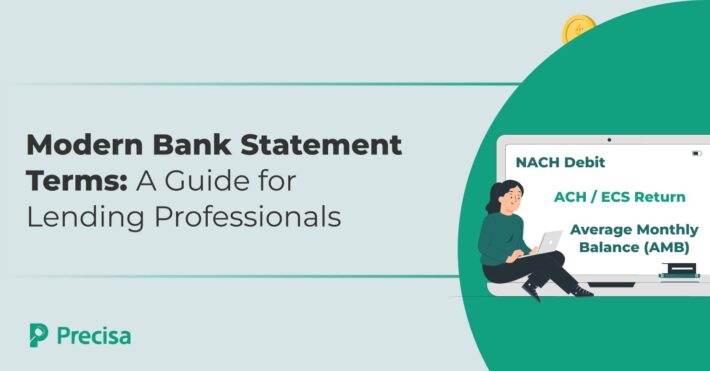Fintech Companies in India: How Robo-Advisors Are Enhancing Service Delivery

Robo-advisors are automated platforms that recommend personalised investment options and portfolios based on a theme or strategy specific to the user. These advisors leverage customer data and use algorithms to offer advice and are transforming the landscape of fintech companies in India.
According to the latest data, assets under management in the robo-advisors market are projected to reach US$19.76 billion in 2024. The number of users of robo-advisors in India is expected to be 3.2 million by 2028.
The use and adoption of robo-advisors have evolved in the past few years owing to the rising financial awareness and the growth of fintech companies in India led by younger consumers.
But what role do the robo-advisors play in the country’s financial landscape?
How Do Robo-Advisors Function?
Robo-advisors, as the name suggests, advise users on their investments and help them develop personalised investment strategies. Here’s how they function:
- The user fills out the required details on the platform, specifies the financial goals, and indicates their risk appetite.
- Factors like time horizons, market expectations, and cash flow are also evaluated to provide a more accurate financial profile.
- After all the relevant information is fed to the system, the software analyses the data and calculates a score per the given parameters.
- The advisor builds a matching portfolio based on the score and manages it automatically.
How Are Robo-Advisors Benefitting the Fintech Companies in India?

The fintech companies in India are leveraging them to reap multiple benefits, such as:
1. Cost Effective Solution
Robo-advisors rely on mathematical algorithms and, therefore require minimum human intervention. As a result, they can significantly reduce operational costs compared to traditional financial advisors. This enables fintech companies in India to offer lower fees to clients—as studies suggest that they can lower operational costs by up to 50%.
2. Scalability and Efficiency
As noted above, robo-advisors use AI algorithms to offer advice to customers. They can handle large volumes of data without hassle and provide objective, data-based solutions. Let’s look at how Robo-advisors are helping fintech companies in India become more adjusting and efficient:
- The business can scale up its operations seamlessly and rapidly without interruption due to a lack of manpower at minimal incremental costs.
- The automated tool carries out customer onboarding, portfolio management, and rebalancing without any manual intervention, which saves time and cost.
- Manual processing of all these activities can take time and is also prone to errors, using robo-advisors minimises mistakes.
3. Better Reach and Inclusivity
The traditional approach to financial advisory is mainly exclusive and limited to only those who can afford it or have large portfolios. Robo-advisors are helping break these barriers by democratising wealth management and helping fintech companies in India promote financial inclusion. Here’s how:
- They offer objective solutions to users irrespective of the amount they wish to invest, whether experienced or first-timers at minimal fees. Thus people with limited funds can also avail of these services and get professional advice without the compulsion to invest large amounts upfront.
- The low-cost entry point also attracts first-time investors, just beginning their investment journey.
- Robo-advisors, being digital, also remove the barriers of location and time, adding to user convenience and expanding the customer base.
- These user-friendly platforms also offer educational tools and resources that empower investors to make informed decisions.
4. Data-Driven Insights
Since robo-advisors leverage algorithms that analyse vast volumes of data, they can offer precise and substantiated advice to users. The algorithm also analyses macroeconomic conditions and market trends to provide forward-looking targeted solutions to its customers.
This vast data cache helps fintech companies in India analyse customer behaviour, preferences and financial goals. The business can use this data to improve its products and services, improve customer experiences, customise solutions and develop targeted strategies.
Also, historical data analysis allows robo-advisors to predict market trends. Using predictive analysis, advisors can offer better advice and fintech companies can proactively adjust their offerings and strategies.
5. Cross-Selling and Integration
Users nowadays often seek all-in-one financial platforms to meet their needs. Fintech companies in India can integrate the robo-advisors with other products they offer. Users based on their profiles could be offered suitable insurance, lending, and payments or payment solutions.
This helps the business build a deeper relationship with the customer, cross-sell products, and reduce acquisition costs. Customers gain as they do not have to approach different service providers and may also get some cost advantage due to existing relationships.
The Future Outlook
The future of robo-advisory in India will hinge on the following aspects:
- Service providers must focus on complying with regulatory frameworks, consumer protection, cybersecurity, and data privacy to protect all stakeholder interests.
- Fintech companies also need to ensure algorithmic biases are eliminated.
- Incorporating new technology such as natural language processing and machine learning will further improve the capabilities of robo-advisory services, allowing for more complex financial planning and investing strategies.
In Conclusion
Fintech companies in India can leverage AI and other modern techniques in multiple ways to cut down costs, deepen customer relationships, minimise chances of fraud and more.
As a cloud-based bank transactions and financial data analytics solution, Precisa offers innovative solutions for financial companies in India to help them streamline their operations and minimise risk.
- The smart bank statement analysis tool leverages AI to help lenders improve their decision-making and provide a better customer experience.
- GSTR Analysis accesses data in real time to get insights into business performance
To learn more about these products and how Precisa can help you, request a free demo today!



